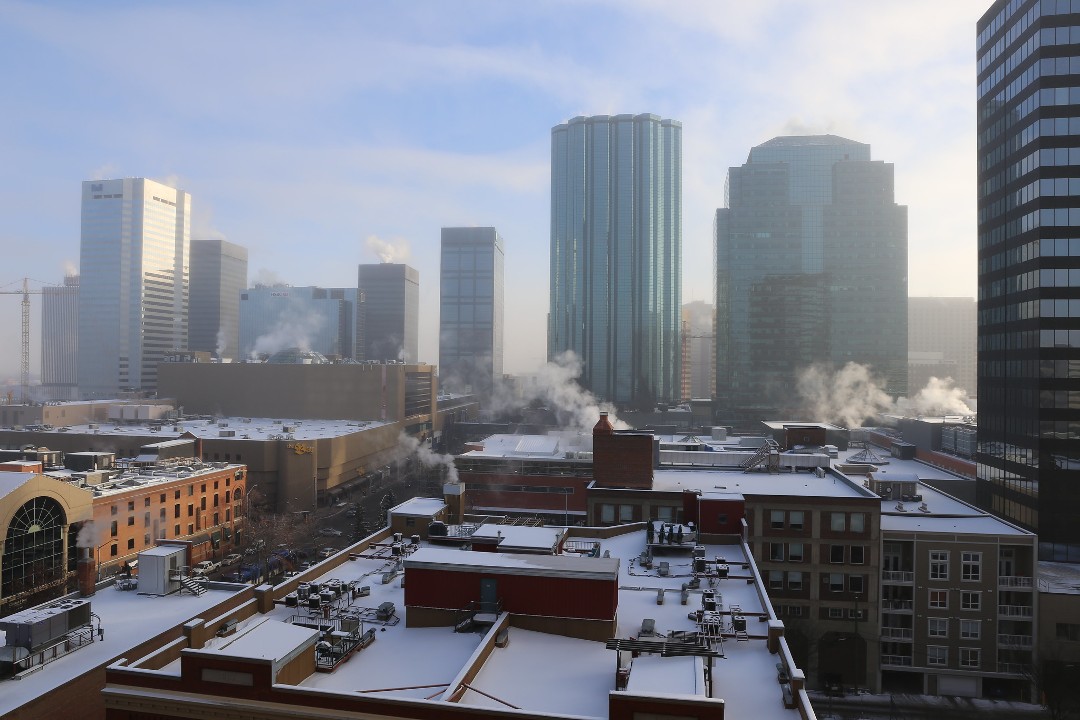The Alberta Ecotrust Foundation is investing $15 million to spark deep retrofits across Alberta, an effort it hopes can make the process of reducing building emissions simpler and cheaper.
A deep retrofit, sometimes called a deep energy retrofit or comprehensive energy upgrade, is a method of renovating a building to minimize its emissions through examining the building's energy usage holistically. The Ecotrust said the retrofits matter because 40% to 60% of greenhouse gas emissions in Edmonton and Calgary come from buildings.
"I'm not going to pretend that we can retrofit every building in Alberta in the next two-and-a-half years," Andrea Linsky, the Ecotrust's director of emissions-neutral buildings, told Taproot. "But we can learn a lot about what's working and what's not working, where we need to figure out better supports, and where, potentially, future grant dollars could be directed most effectively to support this type of work."
The Ecotrust received $14.8 million from Natural Resources Canada, which comes from the federal government's Deep Retrofit Accelerator Initiative stream, plus $250,000 from RBC Foundation's Tech for Nature program. The Ecotrust aims to use the funding until March 2027 to provide 1,000 building owners with coaching on deep retrofits and offer 35 project assessments within that pool.
How to perform a deep retrofit — especially affordably — isn't well understood, Linsky said. That's why the Ecotrust found partners in SAIT, the Pembina Institute, and the Alberta Energy Efficiency Alliance to help with training, networking, research, and more.
"A big part of the Retrofit Accelerator program at Alberta Ecotrust is about building the capacity of (the) Alberta industry in general to support deep retrofits of buildings," Linsky said. "We knew that Alberta Ecotrust alone couldn't do that. It had to be a big effort from many entities."
That research will be partly informed by the coaching that new hires at the Ecotrust offer, such as Edmonton's Thivya Viswanathan. Linsky said Viswanathan has helped commercial real estate companies implement deep retrofits in the past.
"She's also got a general knowledge of how buildings work and the types of things you want to ask and look into (for a deep retrofit)," Linsky said. "With that experience, she also has an inherent understanding of how corporate decision-making works, because that's often one of the biggest barriers to getting any sort of project work done on buildings … it's not just a 'Yes' or 'No' decision for one person. It can be quite complex."

The Ecotrust Foundation said 40% to 60% of greenhouse gas emissions in Edmonton come from buildings, and that work to retrofit buildings to be more efficient is vital to putting a large dent in overall emissions. (Mack Male/Flickr)
Coaches identify priorities and cost-saving opportunities, teach how to navigate financing and funding applications, and help mentees find ways to integrate retrofits into regular building maintenance. For example, coaches can point program participants to municipal funding programs for retrofits or lenders with favourable rates for borrowers who reduce energy consumption. They may also point to priority upgrades in a building, such as a boiler, that can reduce emissions and costs simultaneously. Or, they might point to an advantageous sequence to implement upgrades when thinking about emissions.
"In some cases, it would just be looking at the different project components and figuring out if there are energy-related savings that would be coming from those that could help reduce your ongoing operation costs," Linsky said.
One example Linsky provided is windows and boilers. Both affect heating, and choosing which to replace, and when, can cut costs. Similarly, Linsky said building owners can adjust their long-term maintenance plans to embed retrofitting into their natural upkeep.
"We want to start changing the mindset of Albertan building owners," she said. "Let's look at it from a slightly different lens and see if we can optimize or reduce the energy that's being used."
That work is already underway. The Ecotrust announced its accelerator on Sept. 24, but it soft-launched it in June. So far, it's working with around 12 building owners that Linsky said she could not name, though she confirmed some are based in Edmonton.
As mandated by Natural Resources Canada, the types of buildings eligible for the accelerator are multi-unit residential, commercial, municipal, hospitals, and schools including universities. The accelerator does not offer technical expertise or funding for deep retrofits. However, it works with service providers such as DIALOG, Englobe, and Stantec to connect program participants with appropriate expertise.
Another way the Ecotrust helps reduce building emissions is through the Emissions-Neutral Building Information Exchange (called ENBIX for short). It's a platform where the foundation shares knowledge and brings people in Alberta's building industry together to build insights on emissions-neutral building. It launched in December, and Linsky said it has made promising partnerships with the Smart Sustainable Resilient Infrastructure Association, Passive House Alberta, and the Carbon Leadership Forum of Alberta.
Next for ENBIX and the Ecotrust are events with its Edmonton-area community of practice. Details are TBA for the meetups aimed at emissions reducers in the building industry.
